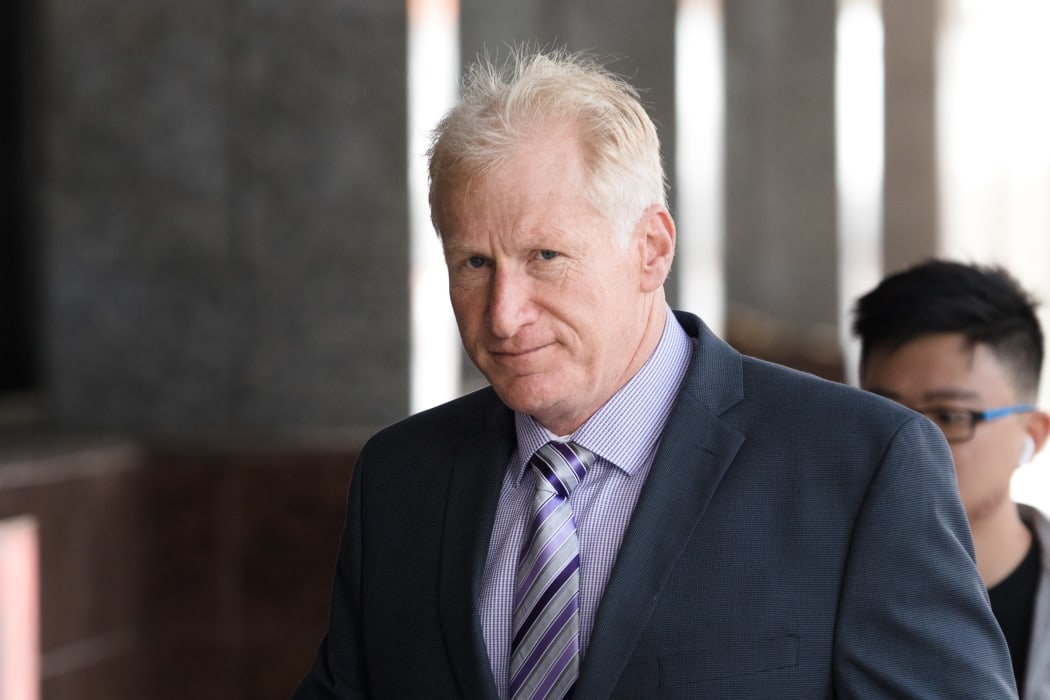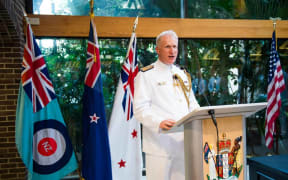Top military attache Alfred Keating has been found guilty of trying to film his colleagues on the toilet in New Zealand's US embassy.

Alfred Keating heading into the Auckland District Court. Photo: RNZ / Cole Eastham-Farrelly
Keating, 59, has been on trial in the Auckland District Court this month charged with attempting to make an intimate visual recording.
He was New Zealand's top Defence Force official when a covert camera was found in a bathroom in the New Zealand Embassy in Washington DC on 27 July 2017.
It was the Crown's case that he was trying to film his colleagues on the toilet, a claim the former Commodore categorically denied.
This afternoon after four and a half hours of deliberations the jury returned with a unanimous guilty verdict.
Keating appeared emotionless in the dock as the verdict was read out. He will be sentenced on 25 June.
In summing up the case this morning, Judge Robert Ronayne told the jury the fact a Brickhouse Security camera was planted was not in dispute.
He said it was their task to decide whether the totality of the evidence meant they could be sure it was Mr Keating who planted it or someone else.
The judge said everyone was equal before the law, no matter what rank or status they had, and told the jurors they had to put aside sympathy or prejudice in deciding the case.
Yesterday Crown prosecutor Henry Steele said Keating was an "absurdly unlucky" man if he was innocent of the charge.
The court has heard a DNA profile found on the covert device's SD card was 10,000 million times more likely to be Keating's than a random New Zealander's.
It's also heard his personal laptop had at one time been connected to a Brickhouse Security camera and had made Google searches relating to the camera brand.
Mr Steele said while a single piece of evidence should warrant little more than suspicion, the totality of it meant the jury could be sure of Keating's guilt.
Keating's defence lawyer Ron Mansfield criticised the handling of the covert device by embassy staff and New Zealand police.
He said the handling and an ultra-sensitive DNA testing technique meant the DNA evidence had been contaminated and the jury could not rely on it.
Mr Mansfield said the investigation was inept and left the jury with an "incomplete picture" that did not prove his client's guilty beyond reasonable doubt.
Attempting to make an intimate visual recording carries a maximum penalty of 18 months' imprisonment.




